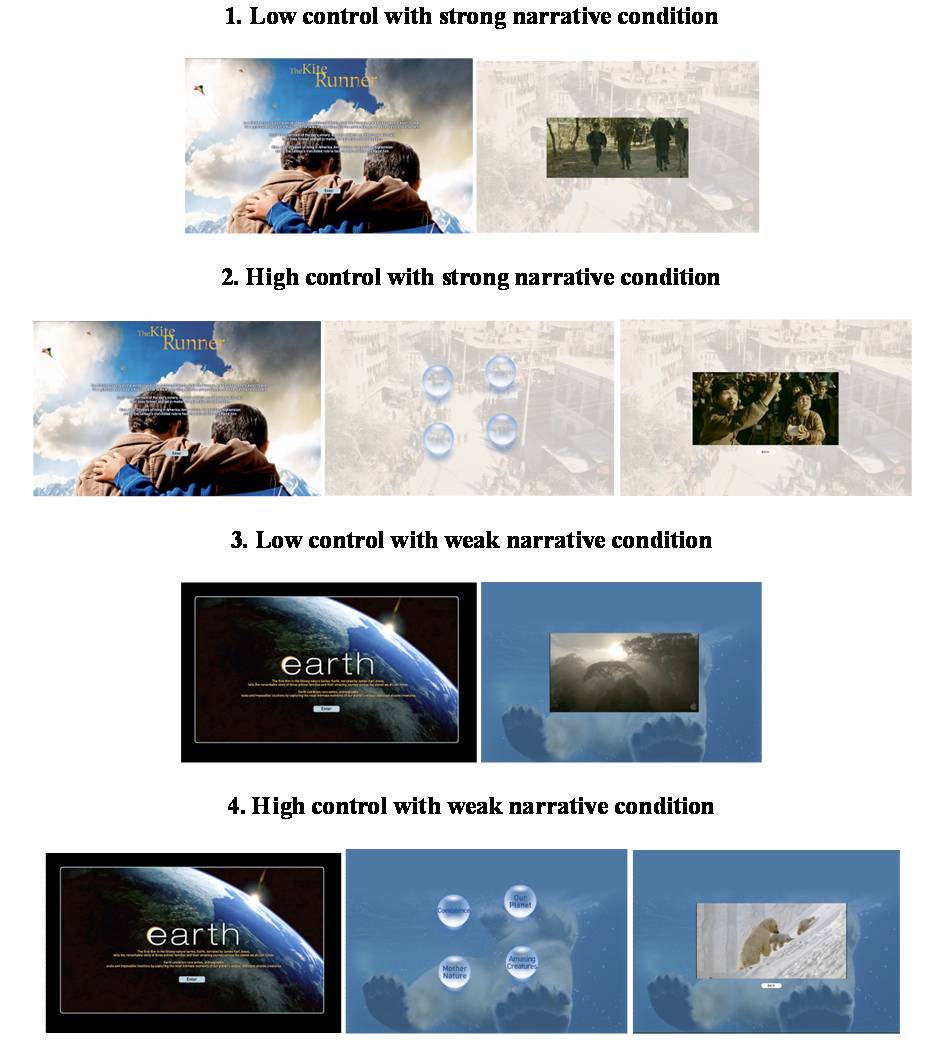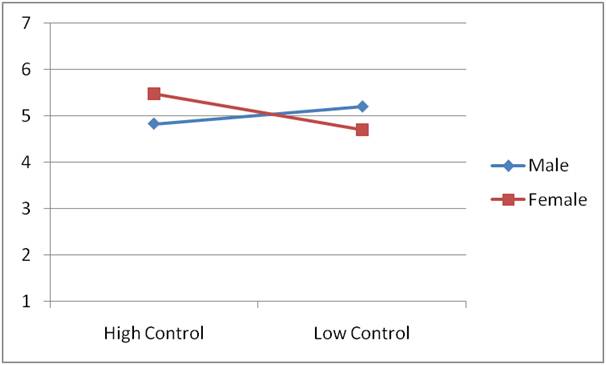Media Effects Research Lab - Research Archive
The effects of user control on movie trailer immersion and enjoyment
Student Researcher(s)
Jeeyun Oh (Ph.D Candidate);
Mun-Young Chung (Ph.D Candidate);
Sangyong Han (Ph.D Candidate);
Faculty Supervisor
INTRODUCTION
Recent interactive movie trailers show the next generation of movie marketing by providing users more controlling experience to navigate information about the movie. However, cognitive load required to control information flow and the inevitable controlling behavior to manipulate medium would interfere with the immersive experience into the narrative world. This study explores a possible negative effect of the user control on immersive and enjoyable experience in the narrative of the movie trailer by comparing the level of immersion and enjoyment in high vs. low user control condition. The strength of narrative was expected to moderate the negative effect of user control, since the stronger the narrative was, the more users would feel interrupted while controlling the movie trailer.
RESEARCH QUESTION / HYPOTHESES
H1: Higher level of user control will lead to less immersion with the movie trailer.
H2: The negative effect of user control on the degree of immersion would be greater for the higher narrative movie trailer than for the lower narrative movie trailer.
H3: Less immersion with the movie trailer will lead to less enjoyment of the movie trailer.
H4: Higher level of user control will lead to less enjoyment with the movie trailer which is mediated by the level of immersion.
RQ1: Does the gender of participants moderate the effects of user control?
METHOD
We conducted a 2 (high control vs. low control) x 2 (strong narrative vs. weak narrative) mixed-design factorial experiment. The level of user control was between subjects factor, and operationalized as the degree to which people control over the possibility to decide what information will be presented and what information should follow (Ariely, 2000). Narrative type was operationalized as the degree to which a movie trailer has traditional narrative characteristics such as a strong plot and conflicts among main characters. Strong narrative type was a drama film, The Kite Runner. Weak narrative type was manipulated as an animal documentary film, The Earth. All stimulus materials are described in Figure 1. A total of 51 male and female undergraduate students enrolled in a telecommunications class participated in exchange for extra course credits.
Figure 1. Screenshots of experimental stimulus

RESULTS
A significant interaction between user control and narrative type showed that low user control was more effective for immersion (M = 5.86) with movie trailers than high user control (M = 5.23) only in the case of strong narrative, as expected. In addition, a significant interaction between gender and user control on behavioral intention was found. While female participants showed more behavioral intention in the high user control condition (M = 5.48) than in the low control condition (M = 4.70), male students indicated more behavioral intention with low user control (M = 5.20) than with high user control (M = 4.83). Finally, the relationship between immersion and enjoyment suggests that these two concepts are strongly correlated.
Figure 2. Immersion as a function of control level and narrative type
Figure 3. Behavioral intention as a function of control level and gender

CONCLUSION
Our current results suggest that the input for more user control can interfere with the immersion, or transportation into the narrative world. If cognitive processing in strong narrative requires people to totally focus in order to fully enjoy that state, additional cognitive load to control the information flow would be inherently conflicting with the immersion into that narrative. Also, the inevitable physical behavior to select which part of movie trailer that they want to see might interfere with the development of mental model about narrative. In addition, the interaction between gender and the level of user control suggests that female participants might be able to enjoy the whole process of navigating the websites while controlling the information flow, by managing the cognitive load from higher user control more effectively than males. Also, this result implies that the criteria for deciding behavior about the movie or movie trailer might be different between females and males. If males had more strict criteria about the efficiency of exploring a website, it makes sense that they showed more behavioral intention in the low control condition, where they could enjoy the whole movie trailer with just one click.
For more details regarding the study contact
Dr. S. Shyam Sundar by e-mail at sss12@psu.edu or by telephone at (814) 865-2173

